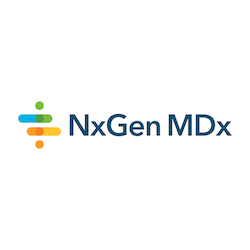Dive Brief:
- Oracle Health has lost customers and client satisfaction hasn’t improved in the three years since the technology giant acquired electronic health record vendor Cerner, according to a report published Thursday by Klas Research.
- The company has lost 57 unique acute care customers in the past three years, 12 of which are larger health systems with more than 1,000 beds, according to the health IT research firm.
- However, there are some bright spots for Oracle. Customer confidence in the technology giant’s long-term vision has grown, and clients note signs of progress in delivering on new technologies, like the company’s artificial intelligence agent.
Dive Insight:
Oracle closed its more than $28 billion purchase of Cerner in 2022, pushing the company deeper into the healthcare sector.
However, the business has faced some headwinds in recent years. Oracle inherited a beleaguered rollout of the EHR at the Department of Veterans Affairs — a pricey project plagued with errors and technical issues.
Oracle also acquired a dissatisfied customer base when it purchased Cerner, and the firm hasn’t yet been able to turn it around, Klas said.
Clients interviewed in the report said their relationship with the EHR vendor has declined, noting the company lacks clear communication, has insufficient industry knowledge due to layoffs, increased its focus on collections and hasn’t delivered on some promises. Due to low satisfaction, half of customers interviewed said they would not purchase the EHR again in 2024.
Oracle has lost health systems clients like Intermountain Health, UPMC, Henry Ford Health, Adventist Health and ChristianaCare from 2022 through 2024, according to Klas’ latest analysis.
Meanwhile, the company’s competitor Epic has been gaining EHR market share among hospitals, according to Klas. In 2024, Epic controlled more than 42% of acute care hospitals, while Oracle held 23%.
More clients don’t see Oracle as a long-term partner, according to Klas. In the second quarter of 2022, 67% of interviewed customers reported they viewed the vendor as a long-term partner, compared with 47% during the first quarter this year.
However, some clients are excited about Oracle’s vision for the future. Clients reported improved code quality in new releases, and some of Oracle’s new and updated technologies are exciting for customers.
For example, early adopters of the company’s Clinical AI Agent, which automatically drafts patient documentation and suggests next steps, are satisfied with the product.
Oracle is embedding AI even more deeply into its new EHR, which it launched for ambulatory providers earlier this month. Some participants in Klas’ survey were excited about the new system, but most said there didn’t have much visibility into the new record.
More than 70% of respondents said they weren't sure whether they’d adopt the AI-backed EHR, while 24% said they expected to go live in the next two to three years.
Oracle didn’t respond to a request for comment on the report by press time.














